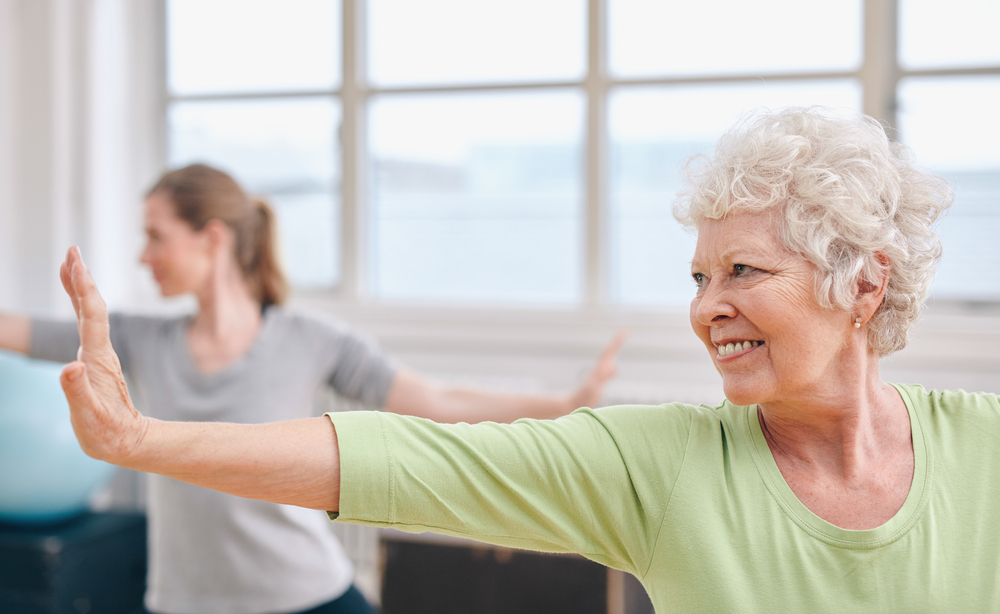A fair amount of research on the health benefits of yoga has been conducted thus far, but a team of researchers at Johns Hopkins took extra initiative and designed the largest known randomized study on yoga’s holistic health benefits in patients suffering from arthritis. The study, titled, “Yoga in Sedentary Adults with Arthritis: Effects of a Randomized Controlled Pragmatic Trial,” was published April 2015 in the Journal of Rheumatology, and suggests arthritis patients that practiced yoga for 8 weeks experienced notable improvements in both physical and mental wellbeing.
“There’s a real surge of interest in yoga as a complementary therapy, with 1 in 10 people in the U.S. now practicing yoga to improve their health and fitness,” says Susan J. Bartlett, Ph.D., an adjunct associate professor of medicine at Johns Hopkins and associate professor at McGill University “Yoga may be especially well suited to people with arthritis because it combines physical activity with potent stress management and relaxation techniques, and focuses on respecting limitations that can change from day to day.”
Johns Hopkins researchers enrolled 75 patients diagnosed with either osteoarthritis or rheumatoid arthritis and randomized them to either be on a wait list or on a twice-weekly regimen of yoga sessions, along with a weekly session at home. Baseline and post-intervention physical and mental wellbeing were assessed, with the researchers not knowing which patients were assigned to which regimen.
The researchers found that, compared to the control group, the group that did yoga classes reported 20 percent pain relief and improvement in energy levels, physical function, mood, and ability to carry out activities of daily living both in the work place and at home. The experimental group also demonstrated a slight improvement in walking speed, balance, and upper body strength compared to those in the control group. These improvements were still observable in the experimental group up to 9 months after.
Associate professor of medicine at the Johns Hopkins University School of Medicine and director of the Johns Hopkins Arthritis Center, Clifton O. Bingham III, M.D., said, “It was watching what happened with my patients and the changes in their lives as a result of practicing yoga that got me involved in the first place,” he says.
The researchers’ primary concern throughout the study was patient safety. Prior to beginning the yoga sessions, each patient was assessed by a physician and was advised to maintain medication compliance throughout the study. “For people with other conditions, yoga has been shown to improve pain, pain-related disability and mood,” says Bingham. “But there were no well-controlled trial of yoga that could tell us if it was safe and effective for people with arthritis, and many health professionals have concerns about how yoga might affect vulnerable joints given the emphasis on changing positions and on being flexible. Our first step was to ensure that yoga was reasonable and safe option for people with arthritis. Our instructors were experienced yoga therapists with additional training to modify poses to accommodate individual abilities.”
As a result, the team created a checklist to help doctors safely recommend the regular practice of yoga to patients with arthritis. The checklist emphasizes the importance of consulting with a physician, especially regarding problem joints and possible pose modifications. “Find a teacher who asks the right questions about limitations and works closely with you as an individual. Start with gentle yoga classes. Practice acceptance of where you are and what your body can do on any given day,” says Bingham.
Other authors of the study include Lawrence Wissow of Johns Hopkins School of Public Health and Steffany Haaz Moonaz, formerly of Johns Hopkins who and now of the Maryland University of Integrative Health.


